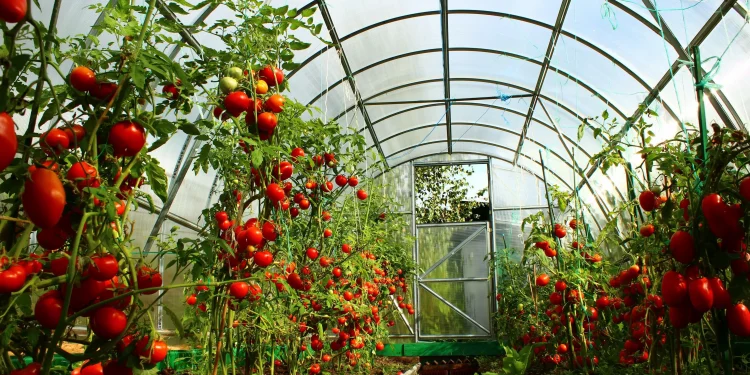In the arid region of Xinjiang, China, Runtai Agricultural Technology Development is spearheading a groundbreaking initiative in sustainable agriculture with the launch of its “smart” greenhouse. Located in Kokdala, this advanced facility integrates cutting-edge technologies to cultivate tomatoes with remarkable efficiency and minimal environmental impact.
Tan Yue, the executive director of Runtai Agricultural Technology, emphasizes the transformative potential of this project. The greenhouse utilizes soilless cultivation methods, leveraging a range of sensors to maximize the benefits of Xinjiang’s unique climatic conditions, which include extended daylight hours and significant temperature variations. Spanning an impressive 16 hectares, the facility functions as an intelligent agricultural park, attracting considerable investment and employing state-of-the-art Dutch agricultural technologies.
The innovative approach adopted by Runtai Agricultural Technology yields significant advantages over traditional farming methods. Annual tomato production is increased by a factor of five to six, while water usage is drastically reduced to just 1/20 of conventional levels. This dramatic decrease in water consumption underscores the ecological sustainability of the project, aligning with global trends toward more environmentally responsible agricultural practices.
One of the key features of the smart greenhouse is its adaptive irrigation system. By monitoring weather conditions and plant needs in real time, the system ensures that tomatoes receive the optimal amount of water and nutrients. This precision in resource management not only promotes healthy plant growth but also minimizes waste.
Additionally, the digital management of the entire cultivation process has resulted in a cost reduction of over 40%. This efficiency gain is a testament to the potential of smart farming technologies to revolutionize the agricultural sector, making it more resilient and sustainable.
For entrepreneurs and investors, the success of Runtai Agricultural Technology’s smart greenhouse in Xinjiang presents a compelling case for the adoption of similar innovations in other regions. The project highlights the benefits of integrating advanced technology with traditional farming, creating opportunities for sustainable growth and enhanced productivity.
As the global demand for sustainable and efficient agricultural practices continues to rise, the achievements in Xinjiang serve as a model for future developments in the sector. The smart greenhouse not only contributes to local economic growth but also sets a new standard for ecological responsibility in farming.












